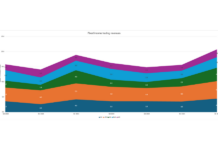The invasion of Ukraine on 24 February 2022 by Russia, wedded to subsequent sanctions and travel restrictions have triggered a series of market responses with the value of the Russian ruble to other currencies crashing in early trading on Monday, 28 February 2022.
The volume of trading in corporate bonds globally had fallen notably in the week ending Friday 25 February, according to market data provided by MarketAxess, with US$99.3 billion traded against US$131 billion for the week before. Morgan Stanley analysts have made the case that the current global macro headwinds support “light positioning and bearishness” on cash bonds.
Falling Russian bond prices were attributed by traders and portfolio managers to a combination of a sell-off in assets and increased default risk.
The Norwegian oil fund, managed by Norges Bank Investment Management (NBIM), which has US$1.3 trillion in assets under management, has said that it will freeze investment in Russian assets, as a result of the war between Russia and Ukraine, and eventually divest itself of those assets.
Line Aaltvedt, spokesperson at NBIM said, “We will implement the decisions made by the Norwegian government and now freeze the fund’s investments in Russia, meaning we will neither buy nor sell shares. Together with the Ministry of Finance, we will prepare a plan to divest from the Russian market.”
The fund had no Russian debt holdings and as at year-end 2021, it had 27 billion kroner invested in Russian equities which equals 0.2% of the fund.
The sanctions being levied by the US, UK and European countries are hitting the Russia’s access to the SWIFT interbank network, its central bank, corporations and wealthy individuals with a perceived political influence.
Ursula von der Leyen, the European Commission (EC) president said the EC would “paralyse” the Russian economy, with sanctions against the Central Bank of Russia and “cutting Russian access to the most important capital markets,” according to an EC a statement, including a prohibition on the listing and provision of services in relation to shares of Russian state-owned entities on EU trading venues and prohibiting the holding of accounts of Russian clients by the EU Central Securities Depositories, as well as the selling of euro-denominated securities to Russian clients.
“These sanctions will target 70% of the Russian banking market, and key state-owned companies, including in the field of defence,” the EC statement said. “They will increase Russia’s borrowing costs, raise inflation and gradually erode Russia’s industrial base. Additionally measures are taken to prevent the Russian elite’s fortunes from being hidden in safe havens in Europe.”

Markus Ferber, MEP, said in a statement, “The financial sanctions against Russia already show some effect. The Ruble has been plunging, while the first Russian banks start to wobble. However, financial sanctions will only unleash their full effect if all major players play their part. I am disappointed to see that Switzerland seems to be dragging its heels when it comes to joining European sanctions. Switzerland has been a safe haven for Russian money for years. If the ‘Suisse secrets’ revelations are any guide, a lot of that money has been dirty money.”
Analysts at Morgan Stanley noted that commodity flows had not noticeably been affected as of 27 February, but there were headwinds on the sector notably the fuel market, with spare capacity for oil largely only existing in Saudi Arabia and UAE, while natural gas had no spare capacity globally.
Tilmann Kolb, analyst at UBS Global Wealth Management, wrote on Monday 28 February that it was necessary to abstain from advising clients on hedging Ruble exposure due to the market’s dysfunction, and suggested they “refrain from trading activity” and try to reduce exposure to Ruble denominated assets as the long term outlook for the Russian economy had significantly declined.
“While the Central Bank of Russia (CBR) diversified its foreign reserve assets away from the US dollar over the past few years, the unified approach by Western nations leaves a large share of the roughly USD 640bn reserve assets in the scope of sanctions,” he said. “This significantly reduces the CBR’s defenses; limits its ability to provide FX to domestic institutions and corporates, including for external debt servicing; and weighs on its ability to defend the ruble against disorderly price movements.”
©Markets Media Europe 2025

























